CAPR’s 2019 Conference in Photos
More than 300 policymakers, practitioners, students, and researchers convened in New York City for CAPR’s 2019 conference. Over the course of two days, participants discussed the future of developmental education and college readiness—attending insightful plenaries, thought-provoking keynote addresses, and informative breakout sessions. The conference, which focused on how colleges can help underprepared college students thrive and ensure that developmental education helps rather than hinders students, considered topics such as equity, the influence of state policy on practice, teaching and learning, and more. The conference featured scholars from CAPR and elsewhere presenting the latest research findings on the effects of various reforms. Below are a few select snapshots from the conference.
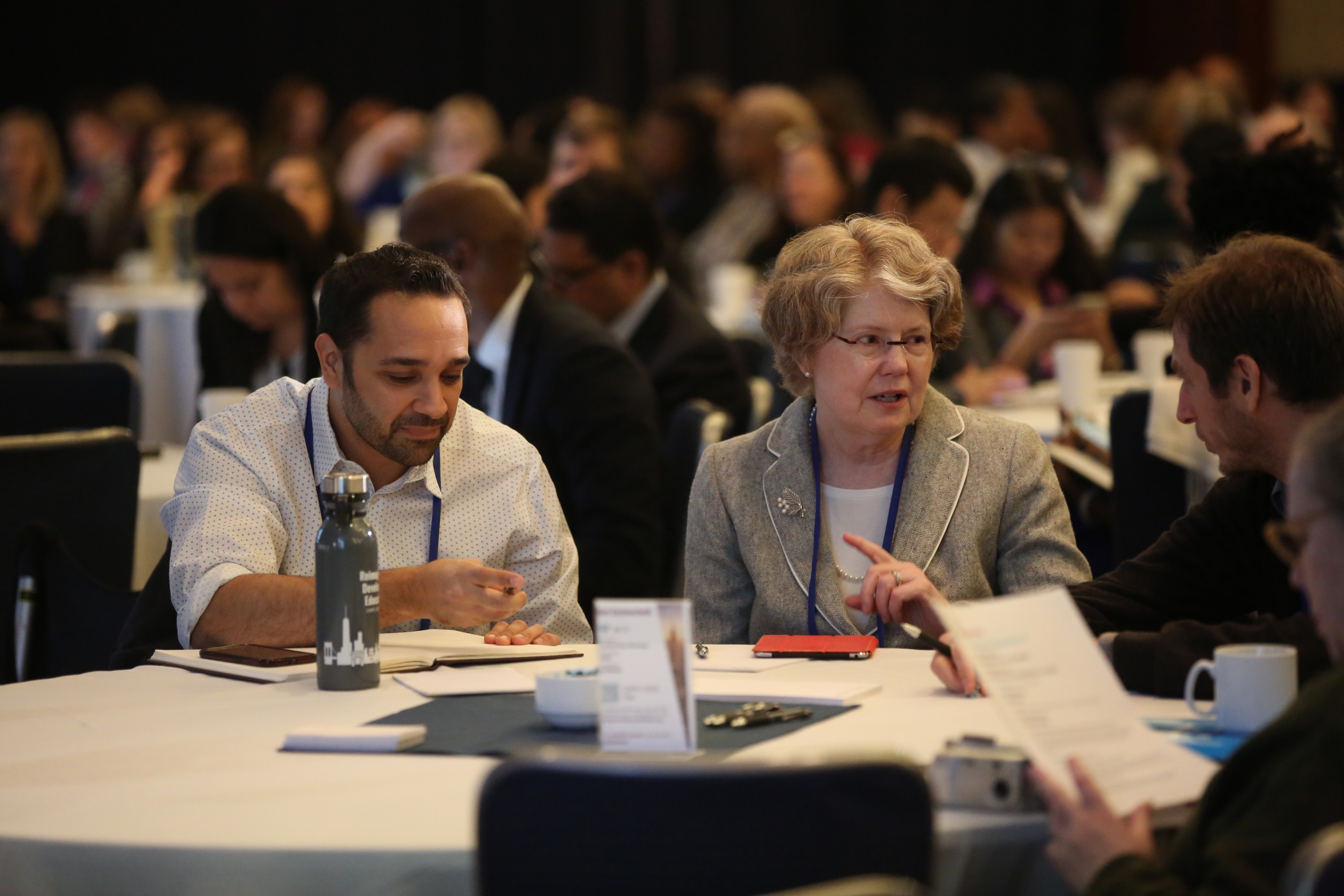
The ballroom at the Crowne Plaza Times Square was filled with attendees from institutions including the City University of New York (CUNY), Brigham Young University, and Amarillo College. Here, Alexandra Logue of CUNY, center, chats with colleagues ahead of opening remarks from CAPR and CCRC’s Nikki Edgecombe on the first day of the conference.
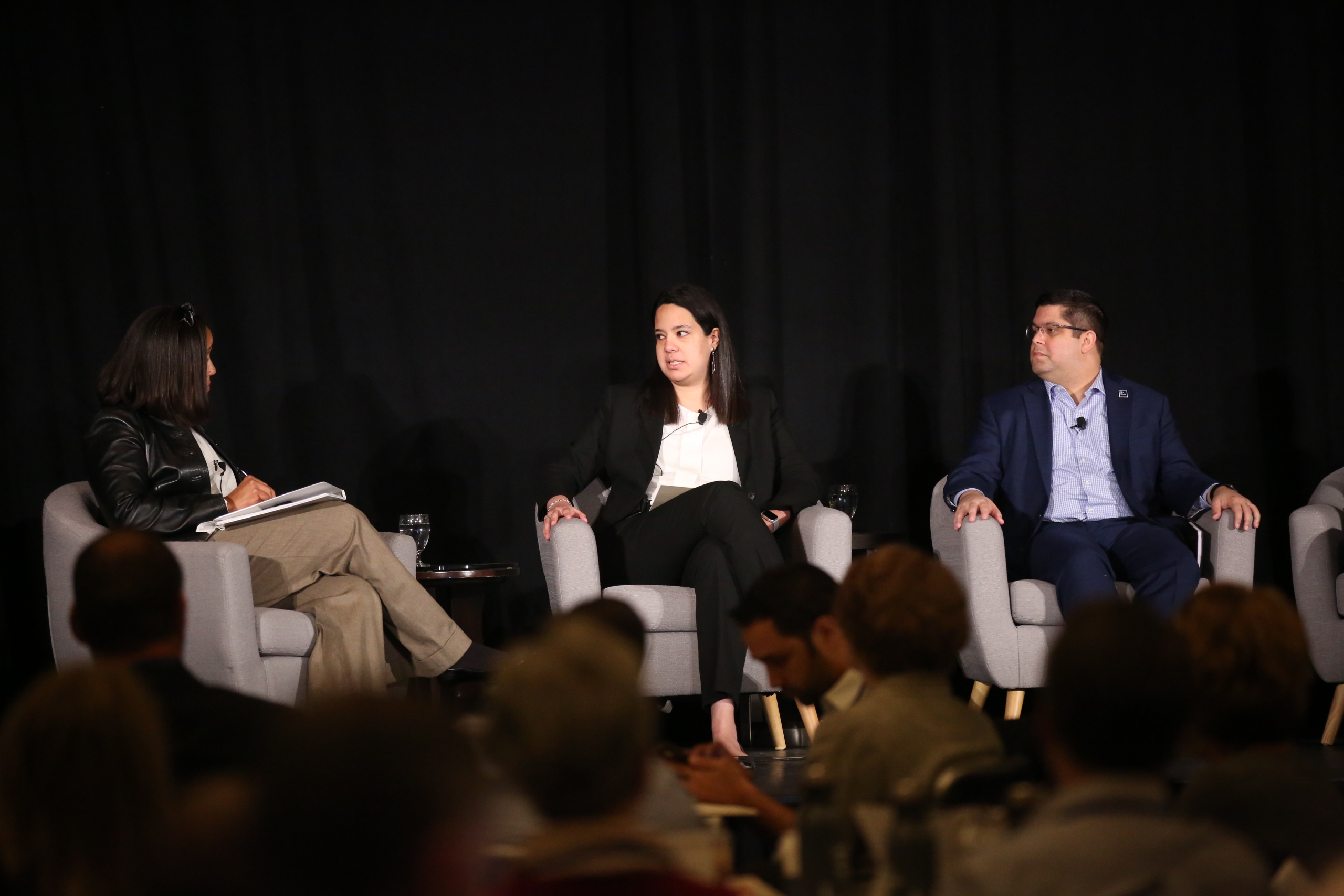
Elena Quiroz-Livanis of the Massachusetts Department of Higher Education speaks during the conference’s first plenary panel, which focused on the developmental education reform policy landscape. Quiroz-Livanis, center, explained that the Bay State recently debuted a publicly available performance measurement reporting system that made racial disparities abundantly clear: “The minute we started disaggregating the data was the minute we realized there were major racial disparities,” she said.
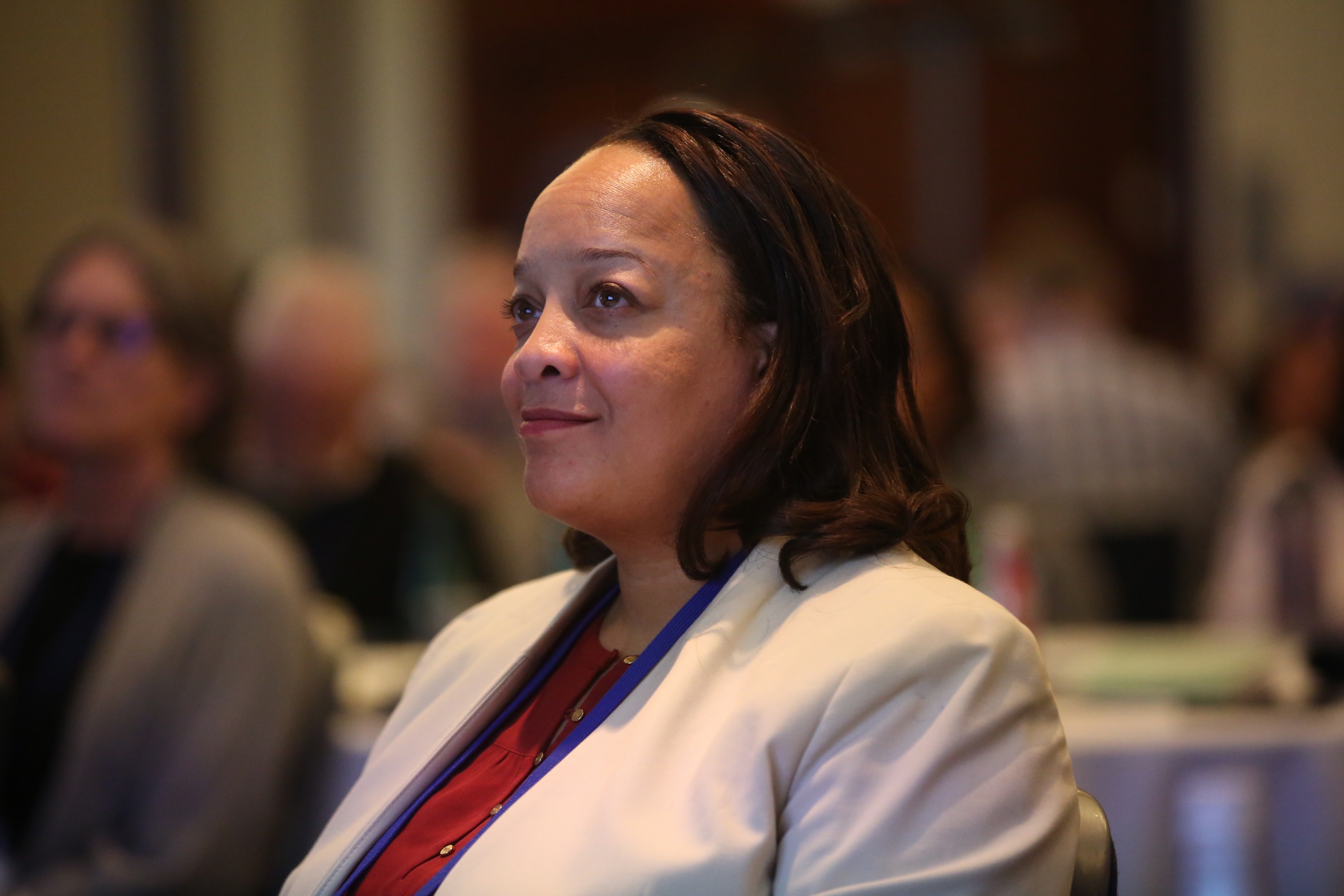
Bridget Terry Long, dean of the Harvard Graduate School of Education, gave the keynote address on the first day of the conference. Her speech outlined the stakes, challenges, and promising routes to improvement in addressing college readiness. She poignantly noted that, “for the average student, the gatekeeper to actual college material isn’t the SAT or the ACT … it’s developmental education.”
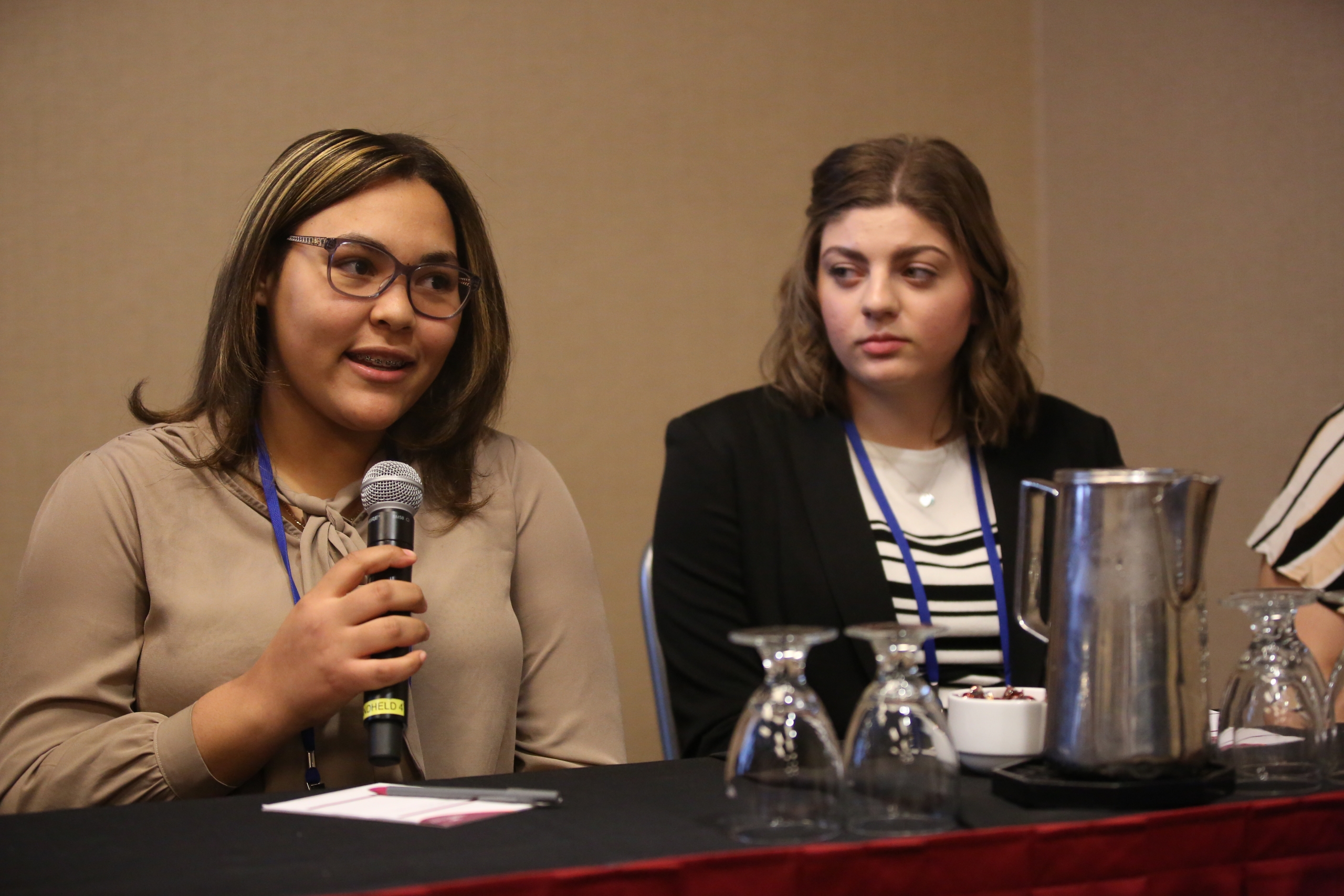
Several students who have participated in various forms of developmental education also spoke at the CAPR conference. Our day one panel, “What are we missing? Students tell us where developmental education has gone right and wrong,” featured four students. Here, Nathaly Rodriguez, left, who is finishing up her associate degree in criminal justice at Borough of Manhattan Community College, contributes to the discussion.
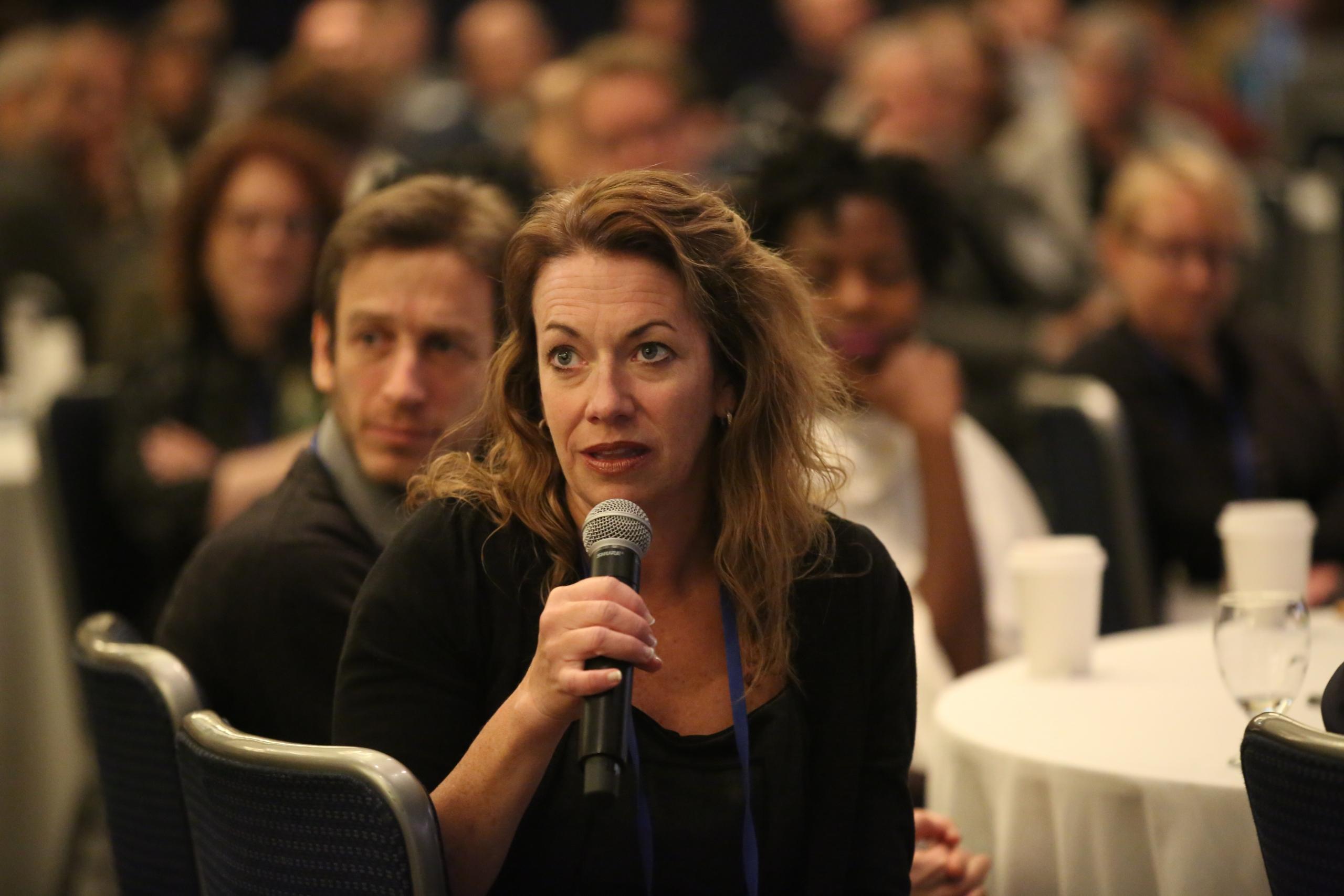
MDRC’s Elizabeth Zachry Rutschow, one of CAPR’s senior researchers, asks a question during a plenary session focused on strengthening curriculum, teaching, and academic and nonacademic supports. Attendees were encouraged to participate in the discussion throughout the convening.
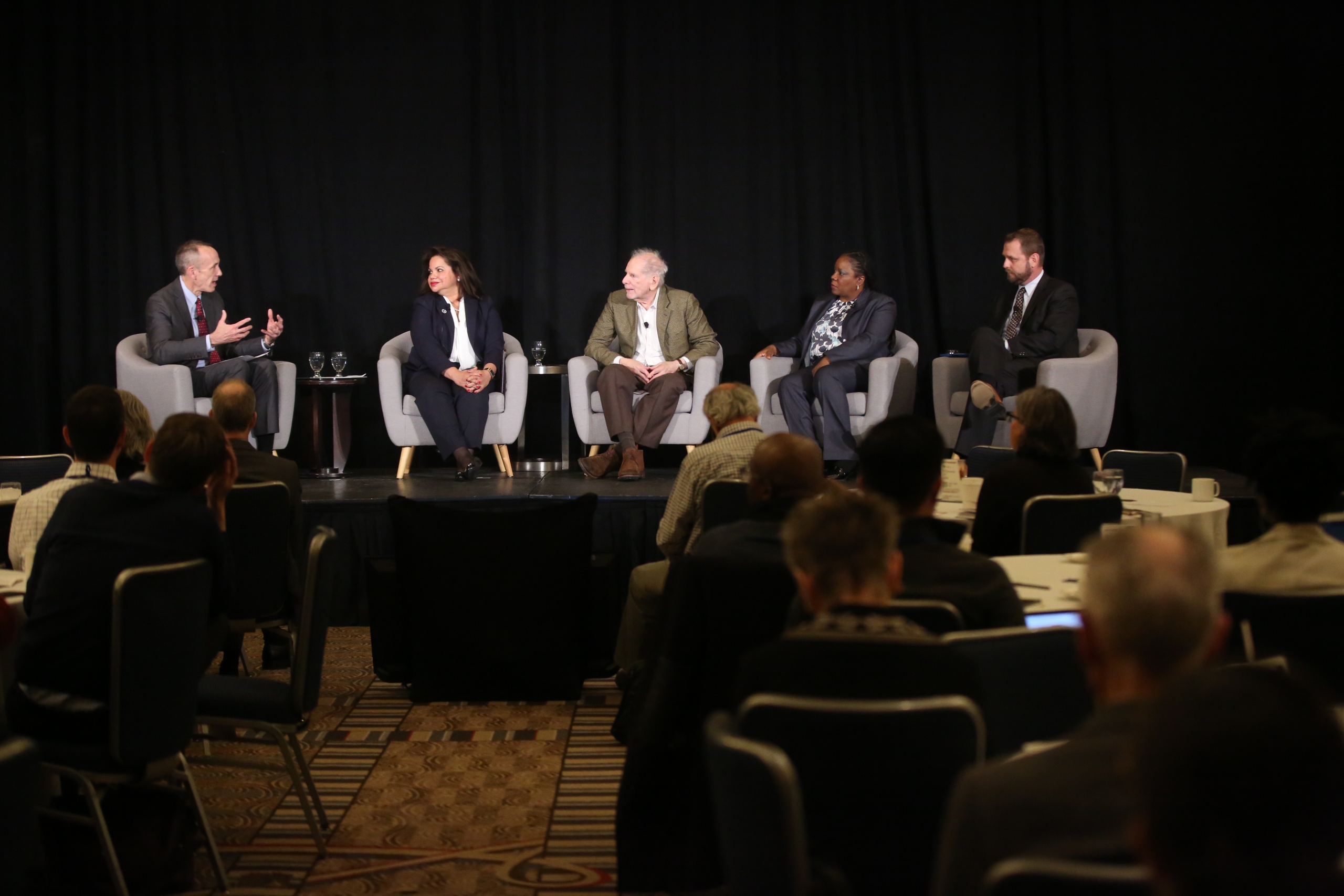
CCRC Director Thomas Brock, left, kicks off the second day of the conference by moderating a plenary panel centered on scaling effective practices. Representatives from SUNY, Strong Start to Finish, Complete College America, and The Charles A. Dana Center spoke about the challenges instructors face in implementing new reforms: “One of the meta principles seems to be: The further you are from the classroom, the easier the work seems,” the Dana Center’s Uri Treisman, center, said.
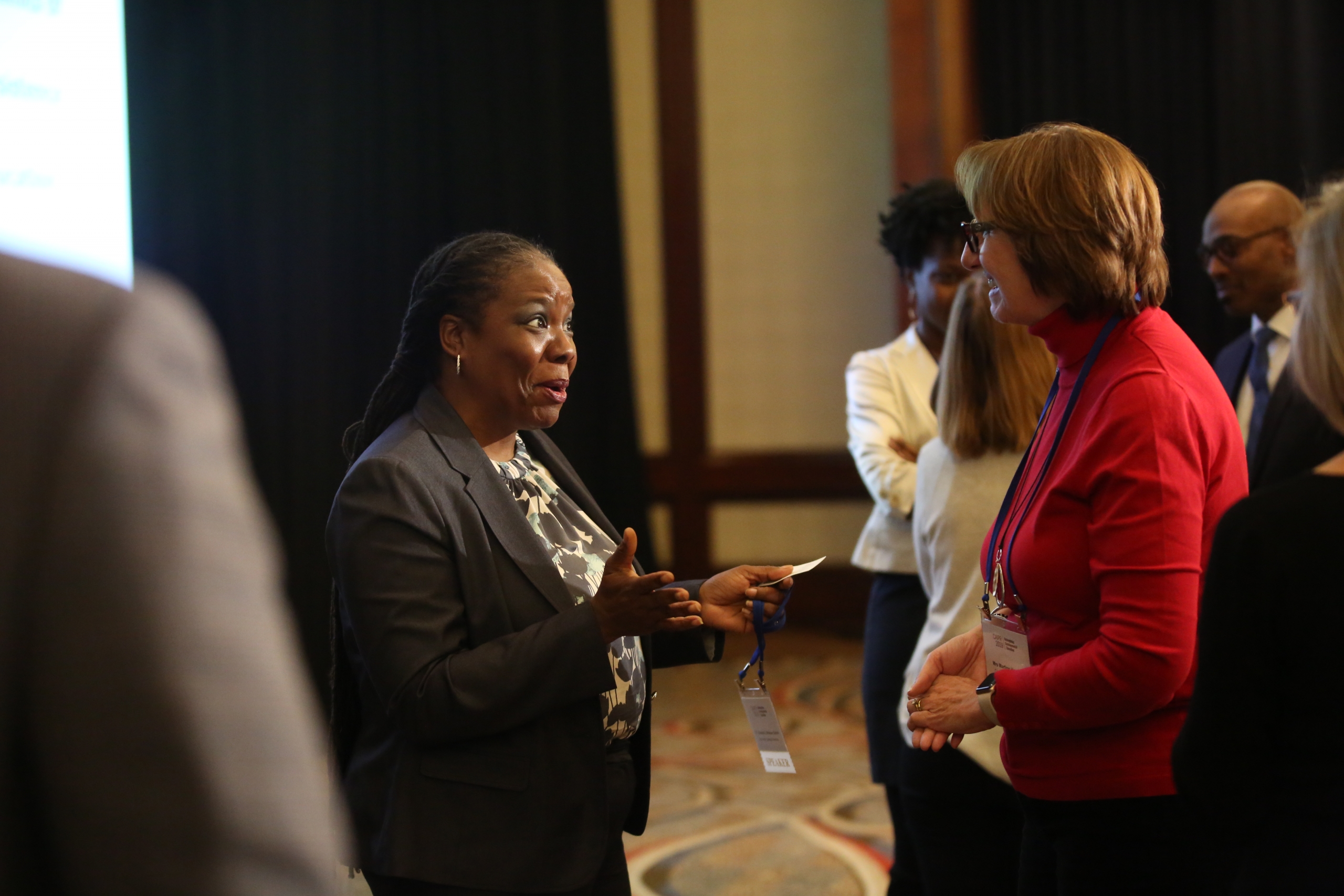
Yolanda Watson Spiva, left, president of Complete College America, talks to another conference attendee after her plenary panel. The CAPR conference brought together stakeholders from across the country to swap stories, share ideas, and land on new insights.
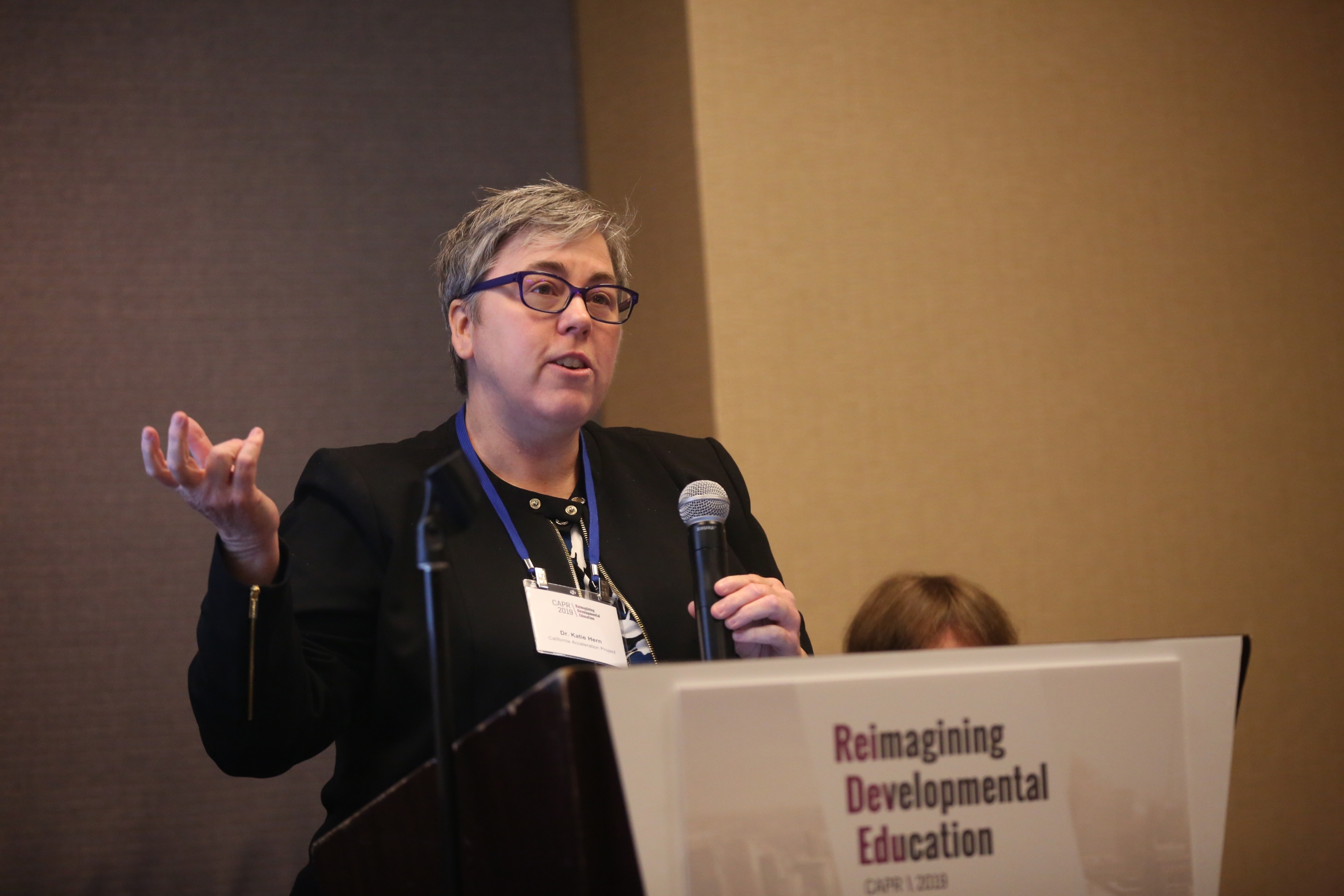
During a well-attended breakout session, Katie Hern of the California Acceleration Project explains the history of California’s AB 705, which requires community colleges to do as much as possible to ensure students take and pass college-level coursework within one year of entry. The impact of fluctuating state policy emerged as an important theme throughout the two-day conference.
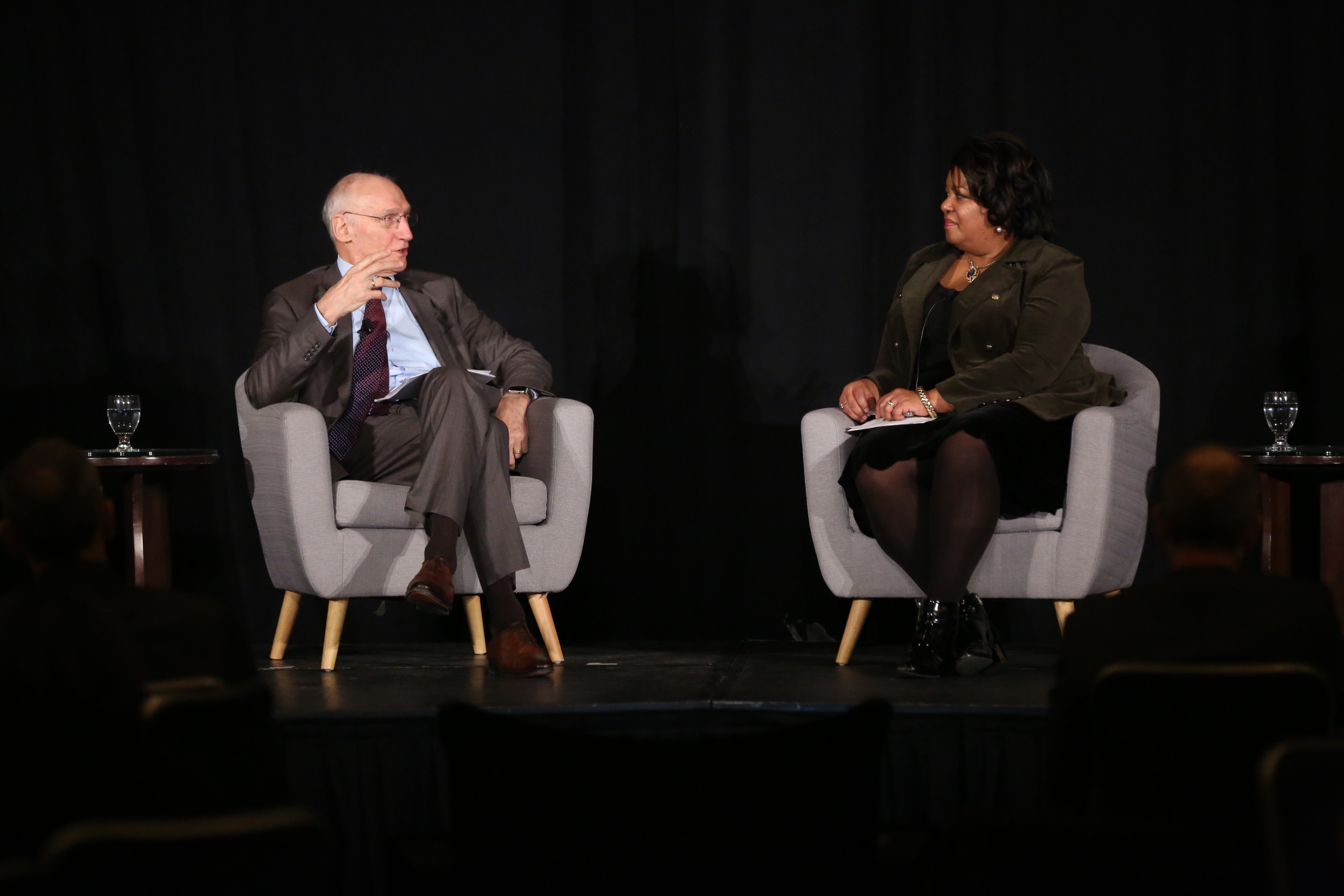
Teachers College President Thomas Bailey speaks with Westchester Community College President Belinda Miles following his keynote address on day two of the conference. Bailey’s speech traced the history of developmental education research over the last 25 years, when the field has seen massive growth and transformed “from a set of best practices to a full-blown movement.”

CAPR and CCRC’s Nikki Edgecombe, left, moderates the final plenary panel of the conference, which looked to the future and considered what the field has learned thus far and what still needs to be better understood before the next generation of reforms can be implemented. Representatives from Ascendium Education Group, the University of Southern California, California State University, and Cuyahoga Community College weighed in.
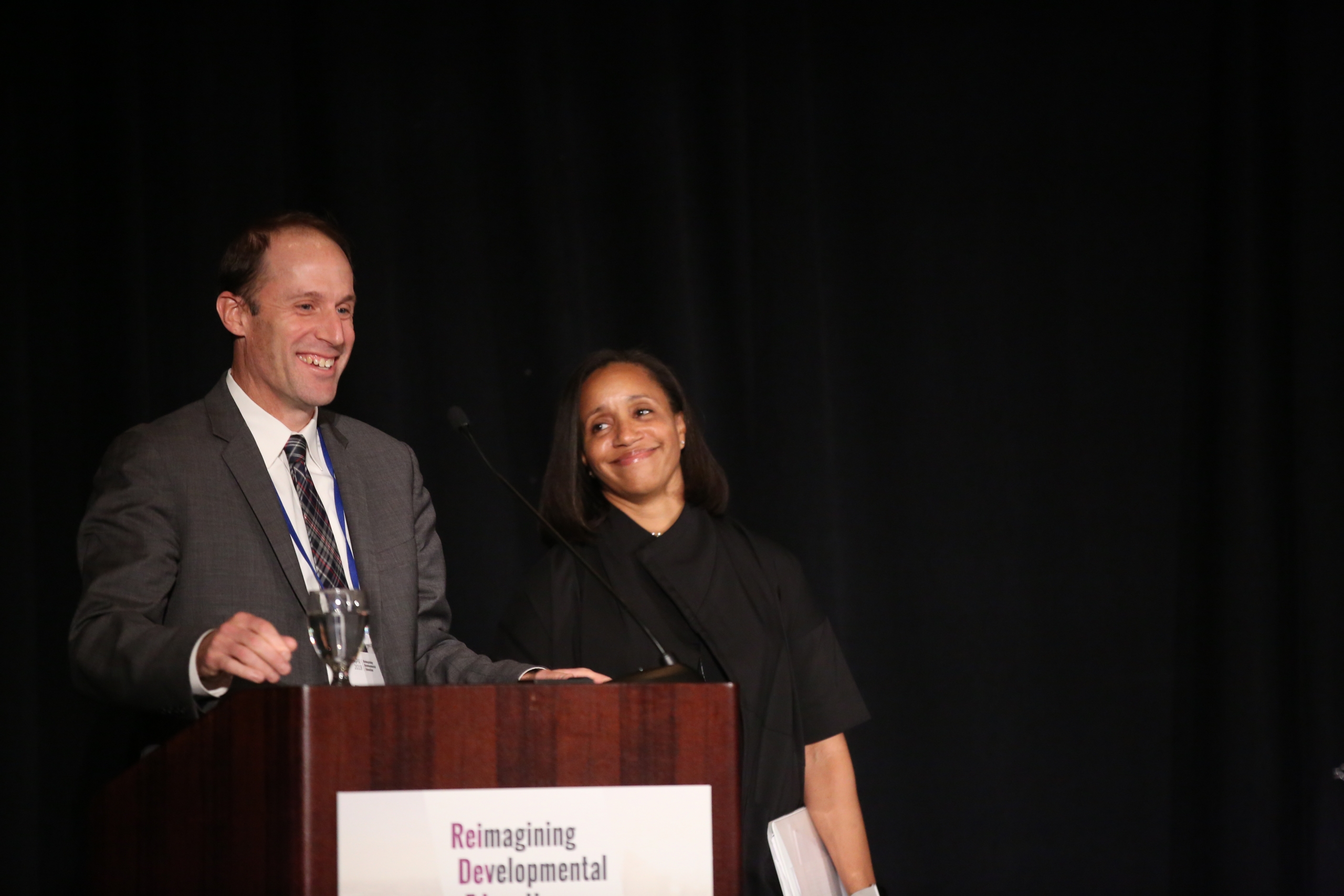
Edgecombe and MDRC and CAPR’s Alexander Mayer reflect on lessons learned and celebrate a successful conference.
